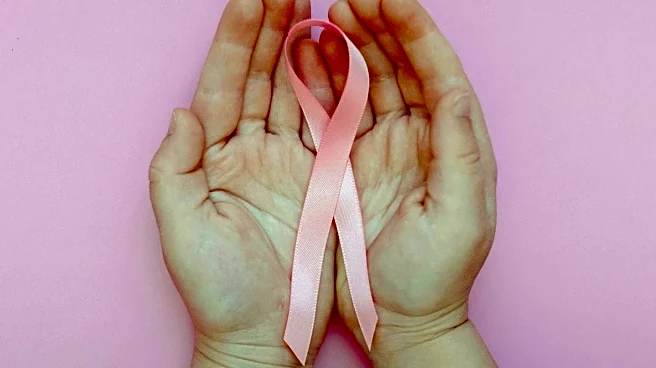What's Happening?
Recent studies indicate a rise in cancer rates among younger adults, particularly invasive breast and colorectal cancers. The increase is attributed to improved screening technologies and earlier detection, which have led to more diagnoses. Despite the rise in cases, mortality rates have decreased due to advancements in treatment, such as immunotherapies. The study, published in JAMA Internal Medicine, suggests that while more cancers are being detected, many may not be clinically significant, leading to unnecessary treatments and associated burdens. Experts emphasize the importance of assessing the risk and potential harm of detected tumors before proceeding with aggressive treatments.
Why It's Important?
The rise in cancer rates among younger adults has significant implications for public health and healthcare systems. It highlights the need for balanced approaches to cancer screening and treatment, ensuring that interventions are necessary and beneficial. The findings also underscore the importance of lifestyle factors, such as diet and physical activity, in cancer prevention. As screening recommendations evolve, healthcare providers must navigate the complexities of early detection and treatment, balancing the benefits of early intervention with the risks of overtreatment. This situation calls for increased awareness and education about cancer risks and prevention strategies.
What's Next?
Healthcare providers and policymakers may need to reassess current screening guidelines and treatment protocols to ensure they align with the latest research findings. There could be a push for more personalized approaches to cancer care, focusing on individual risk factors and the potential impact of treatment. Additionally, public health campaigns might emphasize lifestyle changes as preventive measures against cancer. As research continues, there may be further adjustments to screening recommendations, aiming to optimize early detection while minimizing unnecessary interventions.
Beyond the Headlines
The increase in cancer rates among younger adults reflects broader trends in healthcare, where technological advancements lead to more diagnoses but also raise questions about the necessity of certain treatments. This situation highlights ethical considerations in medical practice, particularly regarding patient autonomy and informed decision-making. It also points to the need for ongoing research into the causes of cancer and the development of more targeted therapies that address specific risk factors and genetic predispositions.











